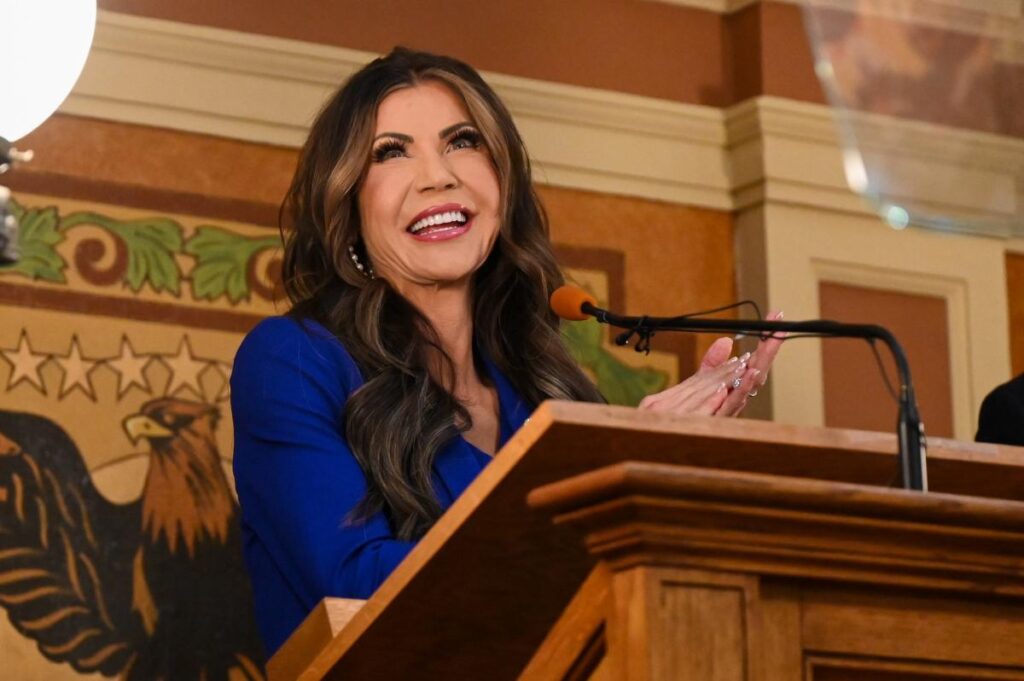The last South Dakota tribe to formally banish Gov. Kristi Noem from their lands is now the first to undo the restriction.
In a letter to Noem written Tuesday, Flandreau Santee Sioux Tribe president Anthony Reider stated the tribe’s executive committee, a leadership council, voted to remove the governor’s banishment from their lands.
The letter also commended Noem on her “nomination by President Elect Donald Trump to the position of Secretary of U.S. Department of Homeland Security,” and expressed confidence in her future endeavors.
In 2024, all nine South Dakota tribes banished Noem from their lands in 2024, with the Flandreau Santee Sioux Tribe being the final tribe to endorse such a measure last May.
Noem apologized to the tribe shortly before her banishment, after Reider warned her in a letter that a ban was imminent.
“It was never my intent to cause offense by speaking truth to the real challenges that are being faced in some areas of Indian country,” Noem wrote at the time. “I want to focus on solutions that lead to safer communities for all our families, better educational outcomes for all our children and declining addiction numbers for all of our people. It is my hope that the Flandreau Santee Sioux Tribe will give us the opportunity to partner together in a way that can be an example for all.”
Tribal council members voted to banish her anyway on May 21, but the apology and subsequent meetings following the tribe’s decision played a part in resolving the breakdown between Noem and tribal leaders.
“One of the stipulations contained in the banishment resolution was that you apologize for the comments that were made regarding tribal members and the education of tribal member children, which were deemed offensive by some,” Reider wrote. “In several meetings before and after the resolution was passed, you not only explained your position, but apologized if the comments offended the Tribe. You additionally sought advice on how to phrase such communications moving forward, which the tribe and I appreciated.”
The rift between the governor and the tribes stems from comments Noem made that were ill-received by the state’s tribes. Near the start of the 2024 legislative session, Noem claimed in a speech centered on the Biden Adminstration’s handling of the U.S.-Mexico border that Mexican cartels were targeting Native American reservations to use as safe havens to spread the use of drugs throughout the Midwest.
The cartel-tribal rhetoric was dialed up in March, when she suggested without evidence during a town hall in Winner that tribal leaders were “personally benefiting” from the cartels. She later called on the tribes to “banish the cartels” in an April press release.
In another March town hall in Mitchell, Noem also made comments about Native American families. The South Dakota governor claimed that, “their kids don’t have any hope,” because they “don’t have parents who show up and help them.” Part of that discussion revolved around her considering next steps to improve state-tribal efforts to help children on tribal lands.
It is not clear whether other South Dakota tribes have lifted their banishment restrictions on Noem.
This article originally appeared on Sioux Falls Argus Leader: Kristi Noem no longer banned from Flandreau Santee Sioux lands
Read the full article here
